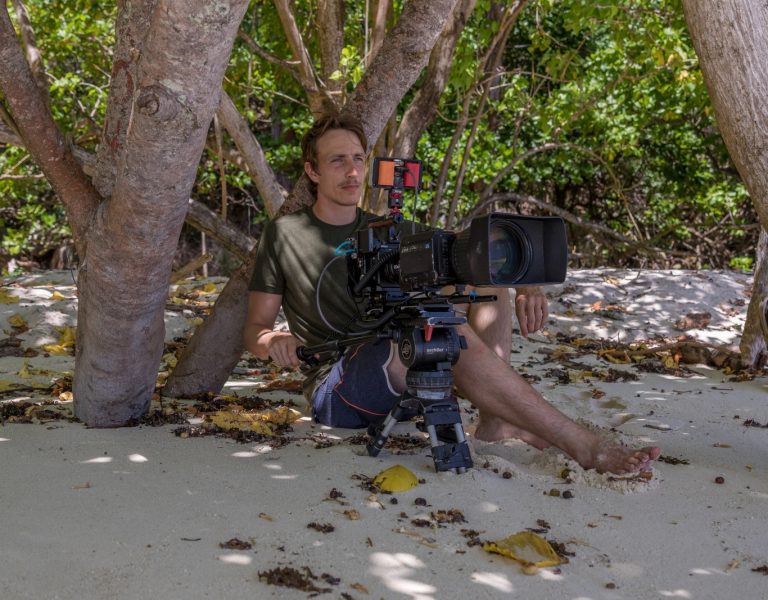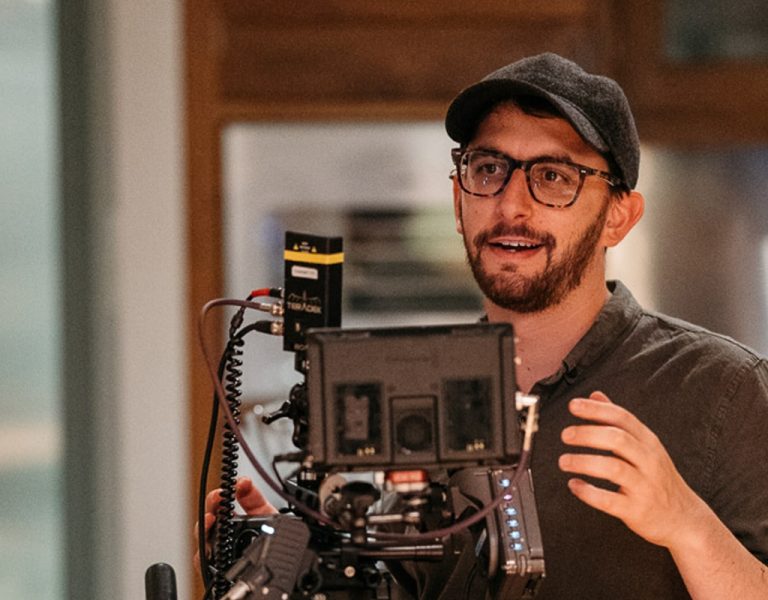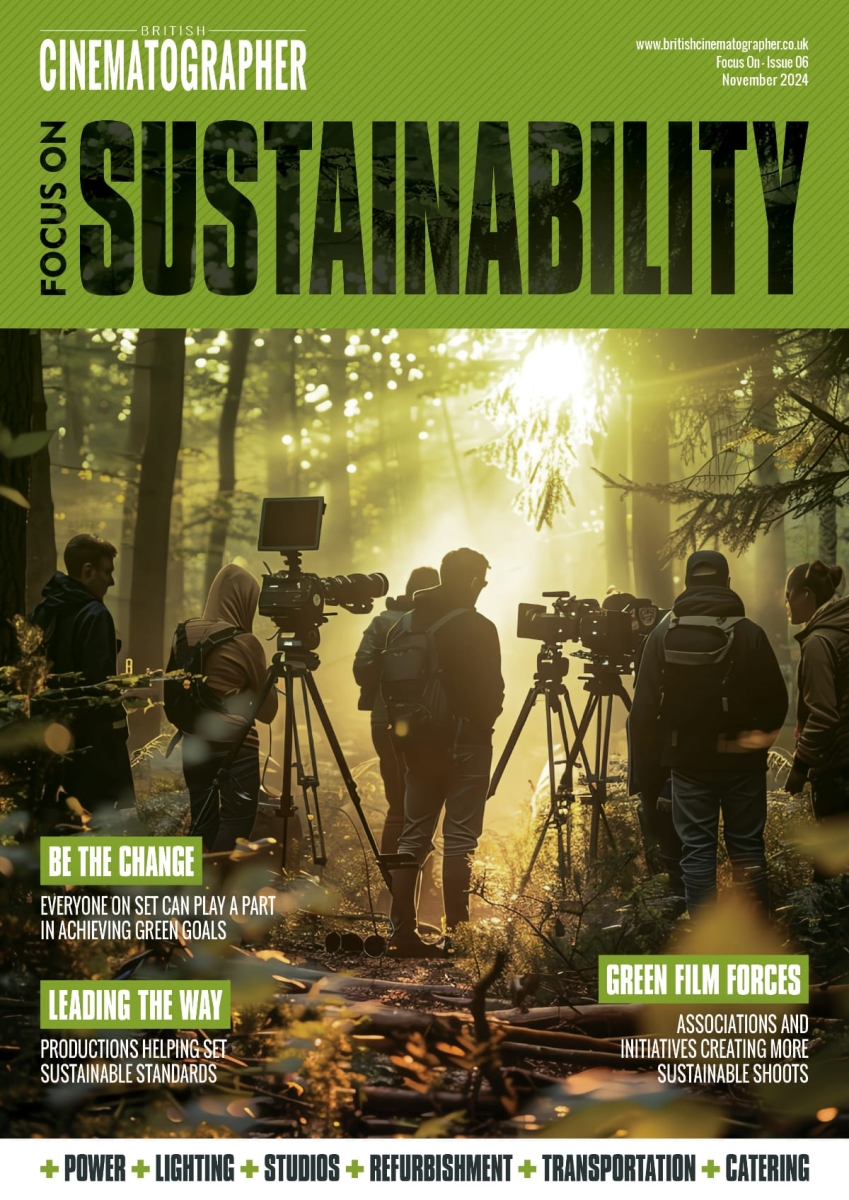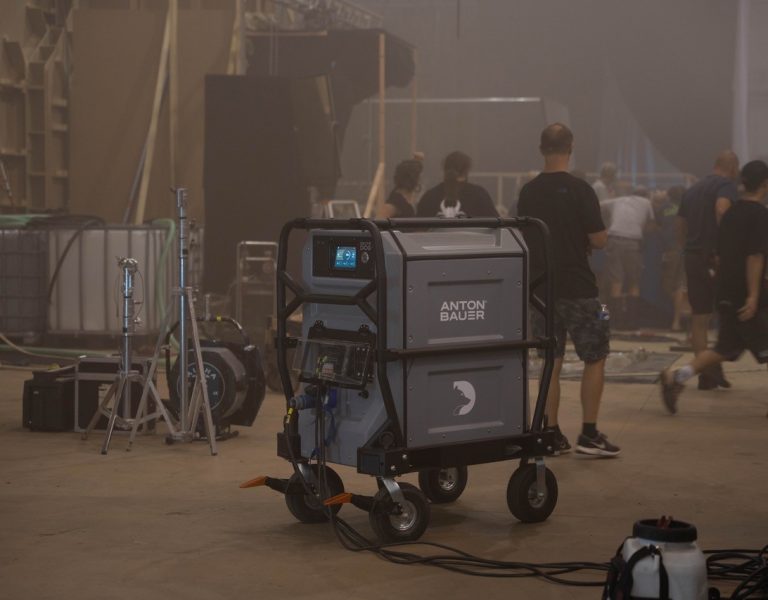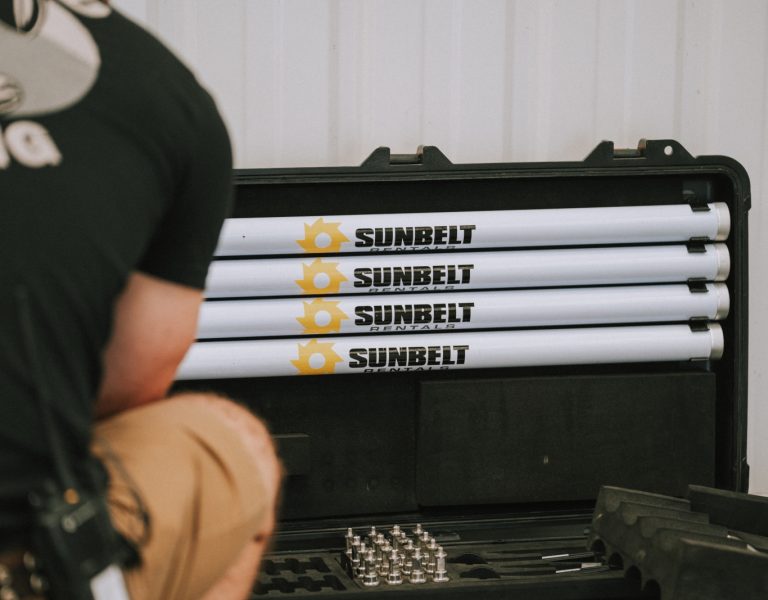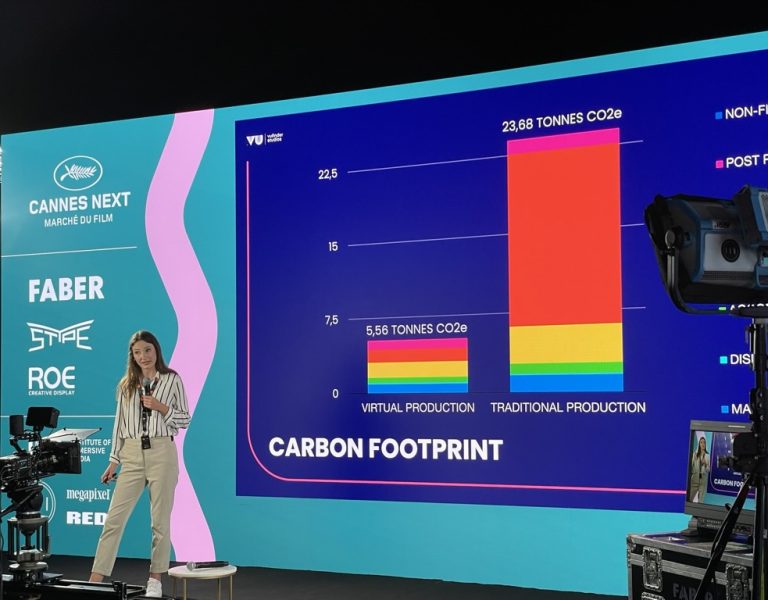INNOVATION, PROBLEM SOLVING, CREATIVITY
The film industry is uniquely configured to respond to rapid change…but only if it’s forced to.
Film production has a lot to answer for regarding sustainability – or lack of sustainability. The travelling circus of a film crew is driven by the imperative of getting the shot, on time and under budget, at all costs. Elaborate sets are built, used for a couple days of shooting, and then thrown into a landfill. Digital solutions are extolled as being greener, when in fact a single visual effect shot can be previs’d, reversioned dozens of times at the highest resolutions, with endless copies of assets continuously burning electricity in the cloud, only to finally be cut out of the film.
And let’s not talk about the air travel.
The 2018 report from the IPCC, the UN’s final word on the sustainability transition, says “Limiting global warming to 1.5°C would require rapid, far-reaching and unprecedented changes in all aspects of society.” Over the past year, global average temperatures tipped past the 1.5°C threshold for the first time. To say we’re running out of time would be an understatement.
But despite its excess (and the Hollywood brand wouldn’t exist without excess), the film industry is in a position to not only change itself, but to be a catalyst for change around the world.
Transformation in our industry is notoriously slow. Some of our workflows have remained unchanged for decades. But the creative industries also have a good record of responding to crisis. “The show must go on” means that if you are faced with a barrier, you find an alternative solution. Giving up and going home is never an option. Should it finally become mandated that all productions must be fully zero carbon, film crews will find a way to deliver that – and probably in elegant ways that no one can even imagine right now.
The sustainability institutions driving change
At present, good sustainability practice is appearing in pockets, across multiple disciplines. The principle drivers of change, so far, have been professional organisations, with BAFTA albert leading the way in the UK, or initiatives from dedicated individuals – producers who have decided to make sustainability a priority, or crew inspired to make their speciality greener. Sustainability trade organisations have popped up in other territories too, including Canada’s highly respected Green Spark Group, Sustainable Screens Australia, and Green Eyes Production based in Hungary.
BAFTA albert has been at the centre of film and broadcast sustainability efforts since it was spawned in 2011 as a carbon calculator created by the BBC. Through trial and error, the organisation, which was given a home at BAFTA, built up expertise in measuring the carbon footprints of productions as well as the impact of film and TV storytelling on sustainability behaviour among audiences.
albert certification is mandatory for virtually all production done for UK broadcasters. In order to get paid, producers must submit a climate action plan to albert and a full report on the production. albert calculates the production’s total emissions and it is up to the production company to offset them before final approval from the commissioning broadcasters.
The carbon calculation method had grown more sophisticated which has led to increasingly accurate data collection for productions. The latest albert Annual Review, which collated data collected from productions in 2023, reported an astonishing increase in emissions of 30% for the average production. This increase is in part due to the larger number of high end scripted TV included in the numbers, which due to their carbon intensity raise the average, but is more likely due to the greater accuracy of measurement due to an upgrade in albert’s carbon accounting tools.
If the accuracy hypothesis is confirmed by next year’s report, that will mean that productions have been woefully undercounting their emissions – and the past carbon credits that have been purchased to offset them.
Insetting replaces offsetting
Until last year, albert certified productions “Carbon Neutral”, and offered carbon offsets through its own offsetting partner Ecologi. But as carbon offsetting schemes have come under increasing criticism for their wide variance in quality, as well as the dubious physics of offsetting itself, albert dropped its “carbon neutral” certification and now only marks productions as “albert certified”.
Individual broadcasters may still decide to require productions to offset emissions, but as an industry practice this has begun to lose priority. Starting this year, shows commissioned by the BBC are no longer required to offset their emissions. Instead the BBC suggests that productions include a specific line for sustainability in their budgets equal to the amount that would previously have gone to offsetting. The BBC puts this rate at £10.50 p/tonne of CO2e emitted by the production, or a rule of thumb of .02% of a productions overall budget.
The BBC then suggests this sum be put toward increasing the sustainability of the production itself. This “insetting” – where the price put on carbon is reinvested into the business to improve its sustainability in practical terms – is becoming an alternative to offsetting, and one that can accelerate change, and continue to reduce carbon emissions from one production to the next.
“Where do we start?” is the universal question every production company asks when starting its sustainability journey, so education and outside expertise can become essential to getting the most out of these sustainability insets. A sustainability coordinator or consultancy will be able to look at the requirements and resources of and, and help producers make creative decisions that result not only in a lower carbon production, but a happier, healthier production too.
Some easy wins can be found in electrifying travel through making EVs more available, or by using battery power on set, or at the very least HVO fuel instead of diesel. Transport and energy are the usually the biggest emitters on a production. Facilities can be upgraded too, with solar panels, EV charging points or heat pumps. Higher quality catering can be brought in with tastier vegan and vegetarian food, as well as locally sourced or organic options, which will have a lower carbon footprint and be better for crew health.
These insetting budgets can also go right to education or consultancy. Bringing in experts to get your team up to speed means empowering them to get creative in finding sustainable solutions, and they’ll be taking that mindset into the next productions they work on.
Complex problems need complex cooperation
But individual productions and vendors, no matter how dedicated they are, will not bring about the full transition we need all by themselves. Studios and broadcasters also need to be ready to make sweeping changes and need to support – and fund – the transition that is required.
Ultimately, solving – or at least slowing – the environmental crisis is going to require legislation and regulation. This is already starting to happen in Europe, with the CSRD (Corporate Sustainability Reporting Directive) requiring companies above a certain size to report on their impact on the environment and society. This will have a knock on effect for any vendors doing business with these companies. Further regulations might require a higher price on carbon which will force faster changes. On the more extreme end, environmental shocks may literally make certain types of production impossible, as well as raising the risks for crew and teams and making productions harder to insure.
Perhaps the most important implementation we can make is the ability to be flexible, and to change how we do productions quickly. If there was a positive thing about the pandemic, it was teaching industries that they can adapt to change very quickly and that there are already a host of tools available to absorb shocks and quickly reconfigure how productions are done.
The film industry is made up of independent components, freelancers, specialist vendors and multiple financiers, and these are increasingly spread out geographically too. While this has always made the film industry an anxious place for those seeking job security, it also means that the industry can reconfigure itself rapidly, given the right push.
Larger individual institutions – like studios or broadcasters – can change via a top-down executive mandate. But more often than not, even the most plugged-in CEO’s struggle to turn around the direction of travel. The directorate of albert – UK broadcasters, Netflix, BT Sport – have been able to make noteworthy changes, cutting down on waste and carbon emissions, which has a knock effect to the rest of the industry. But these are still often changes in quantity rather than quality. Sustainability will require more than just a better ways of filmmaking, it will require a completely new ways of filmmaking.
–
Words: Neal Romanek, The Flint









